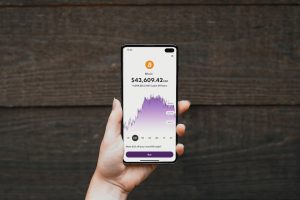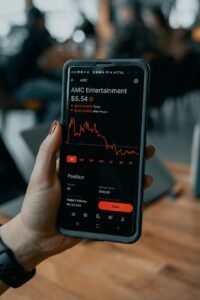Forex Trading: Understanding the Differences Between Forex and Oanda
In the world of forex trading, it is crucial to be aware of the various platforms and brokers available in the market. One such broker that has gained significant popularity is Oanda. However, before delving into the differences between forex trading and Oanda, it is essential to understand what forex trading entails.
Forex trading, also known as foreign exchange trading, involves the buying and selling of currencies. This market operates 24 hours a day, five days a week, making it highly accessible to traders worldwide. It is the largest financial market globally, with an average daily trading volume of over $6 trillion. Forex trading can be done through various platforms, with Oanda being one of the most reputable brokers in the industry.
Oanda, founded in 1996, is a global forex and CFD (Contract for Difference) broker that offers trading services to individuals and institutions. It provides traders with a user-friendly platform, competitive spreads, and a wide range of trading instruments. Oanda has gained a strong reputation in the industry due to its transparency, reliability, and innovative technology.
Now, let’s explore the differences between forex trading and Oanda:
1. Market Access:
Forex trading provides traders with access to the global currency market. Traders can buy and sell currencies directly through various platforms, such as MetaTrader, cTrader, or proprietary trading software provided by brokers. On the other hand, Oanda is a broker that allows traders to access the forex market. Traders can execute trades through Oanda’s proprietary trading platform, known as Oanda Trade or through third-party platforms like MetaTrader.
2. Trading Instruments:
Forex trading offers a wide range of currency pairs for trading. Major currency pairs like EUR/USD, GBP/USD, and USD/JPY are commonly traded, along with exotic and minor currency pairs. In addition to currencies, forex trading platforms often provide access to other financial instruments like commodities, indices, and cryptocurrencies. Oanda, as a broker, offers trading in numerous currency pairs and CFDs on commodities, indices, and bonds.
3. Pricing and Spreads:
Pricing and spreads are significant factors to consider when choosing a forex broker. Forex trading platforms usually offer two types of pricing models: market maker and ECN (Electronic Communication Network). Market makers act as counterparties to traders’ trades, while ECN brokers connect traders directly to liquidity providers. Oanda operates as a market maker, providing competitive spreads on its platform. It also offers variable spreads, meaning that spreads may widen or narrow depending on market conditions.
4. Regulation and Security:
Regulation is a crucial aspect of the forex trading industry, as it ensures the safety of traders’ funds and fair trading practices. Forex brokers, including Oanda, are regulated by financial authorities in the countries where they operate. Oanda is regulated by reputable bodies such as the Financial Conduct Authority (FCA) in the UK, the Commodity Futures Trading Commission (CFTC) in the US, and the Australian Securities and Investments Commission (ASIC) in Australia. These regulatory bodies enforce strict guidelines to protect traders’ interests.
5. Account Types and Minimum Deposits:
Forex trading platforms and brokers offer various types of trading accounts to cater to different trader needs. These accounts may differ in terms of minimum deposit requirements, leverage levels, and additional features. Oanda offers various account types, including a standard account with no minimum deposit requirement and a premium account with a minimum deposit of $20,000. Traders can choose the account type that suits their trading style and capital.
In conclusion, forex trading and Oanda are interconnected but distinct entities within the world of online trading. Forex trading provides traders with access to the global currency market, while Oanda serves as a broker facilitating trading in the forex market and other financial instruments. Understanding the differences between forex trading and Oanda is crucial for traders to make informed decisions and choose the most suitable platform for their trading needs.





